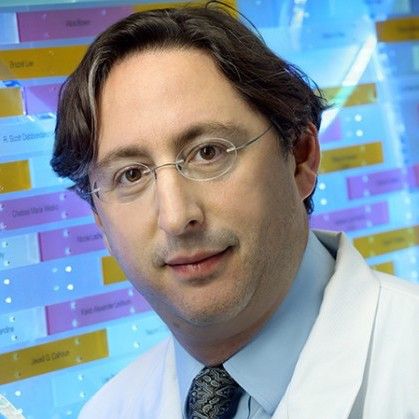New Study Will Probe Safety of HIV-to-HIV Kidney Transplants
Researchers aim to prove that it’s safe for an HIV-positive patient to receive a kidney donation from an HIV-positive donor.
Dorry Segev, MD, PhD, Johns Hopkins Medicine

Dorry Segev, MD, PhD
A new study may pave the way for HIV-positive patients to receive organ transplants.
The National Institutes of Health this month announced the launch of the HOPE in Action Multicenter Kidney Study to research the safety of kidney transplantation from HIV-positive donors to HIV-positive recipients.
“This trial is the culmination of almost a decade of work, and we are thrilled to see it supported by the NIH,” said Dorry Segev, MD, PhD, co-principal investigator on the study. “When we were first interested in doing HIV-to-HIV transplants, it was illegal: banned by congressional law.”
Segev, a transplant surgeon and a professor of surgery and epidemiology at Johns Hopkins University, told MD Magazine that he and colleagues completed the research necessary to prove HIV-to-HIV transplantation had positive potential, and then launched a public awareness campaign to get Congress to change the law. That change happened with the passage of the HIV Organ Policy Equity (HOPE) Act in 2013. The first kidney and liver transplants were completed in 2016. Segev said the design of this study took several years.
The study will include 160 kidney transplants to HIV-positive patients. Half of the donations will come from deceased patients who were HIV positive. The other half will come from deceased patients who are HIV negative, thus serving as the control group. Both patients and physicians will be made aware of the HIV status of their particular donor.
Christine Durand, MD, the study’s other co-principal investigator and an assistant professor of medicine at Johns Hopkins, told MD Magazine that more and more HIV-positive patients are living longer lives. As they do, more patients need treatment for chronic diseases like kidney disease.
Durand said it’s not known exactly how many patients with HIV are in need of kidney transplants. However, it is known that HIV can cause damage to the kidneys and liver, as can its coinfections and associated comorbidities, such as hepatitis B and C infection, and diabetes.
“But we do know that for those on dialysis, a transplant would have a survival benefit,” she said. “It is estimated that 1—2% of the 469,000 Americans on dialysis have HIV—so that means that the need for kidney transplant could be as high as 10,000.”
While this first study looks exclusively at donations from deceased donors, Durand said it’s possible that living HIV-positive patients could also be donors.
“The HOPE Act does allow for those living with HIV to also be living donors. So we are studying that—but in a different study,” she said. “To date, as far as we know, a living donor HIV-to-HIV kidney transplant has not occurred—but we have an open study and we are evaluating potential donors who are interested.
“We think that the risk of donating a kidney to someone living with HIV is reasonable—as long as we ensure that the donors have well-controlled HIV infection and are otherwise healthy without conditions like high blood pressure or diabetes,” she continued.
In fact, Segev published a study last summer that concluded HIV-positive donors who meet those qualifications should be considered low-risk donors.
In addition to potentially proving the safety of HIV-to-HIV transplants, Segev noted that the study could also yield important new insights about HIV itself.
“After all, it’s the first time we purposefully expose someone with one strain of HIV to another strain of HIV through an organ transplant which is a huge viral load,” he said. “Learning from this unique clinical situation might help us eventually cure HIV.”